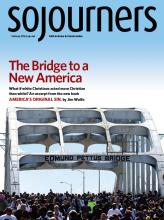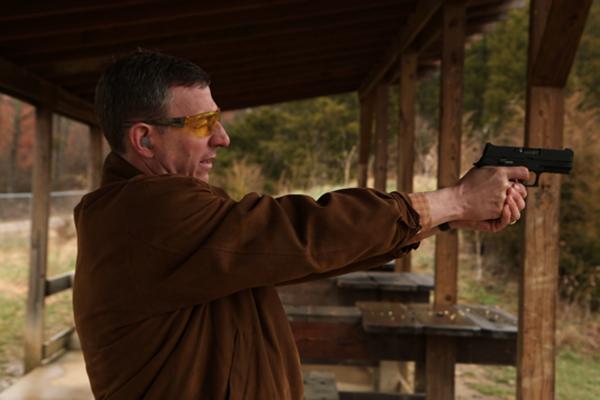AT FIRST GLANCE, Abigail Disney’s documentary The Armor of Light seems straightforward: It’s about guns and escalation of mass shootings in the U.S. But at its core, the film looks at the complicated relationship between evangelical Christianity and this country’s gun culture. It is just as much about theology as it is about politics.
The film follows the story of Rob Schenck, a conservative evangelical minister whose strong pro-life views about abortion are at the center of his work and advocacy on Capitol Hill. But with each instance of gun violence he hears about, Schenck becomes convinced that calling himself pro-life rings hollow without a critical look at our gun culture. He can no longer ignore the association of guns with evangelical Christianity.
Schenck’s story intersects with that of Lucia McBath, the mother of Jordan Davis. In 2012, Davis, a black teenager, was shot and killed at a Florida gas station in a dispute over the volume of his music. The man who fired the shots, a 45-year-old white male, tried to justify his actions by the “stand your ground” law, explaining he felt threatened by the presence of Davis and his three friends. In response to the death of her child and the following legal battle, McBath became involved in gun-control advocacy.
Coming to the issue from different paths, McBath and Schenck find themselves both allies and foils. McBath, the mother whose son was murdered for being black and present, identifies as pro-choice, while Schenck gained national attention for protesting women’s health clinics in the early 1990s in Buffalo, N.Y.
This already has the makings of a compelling story, but the film hits its stride not in character development but in the theological questions it poses. In addition to discussing the effects of gun violence on those who are killed, Schenck questions what this pervasive gun culture does to those who defend it.
He pushes against the platitude “the only thing that stops a bad guy with a gun is a good guy with a gun,” asking who can definitively categorize others in such black-and-white terms. Likewise, the film asks why so many Christians seem to place more trust in a piece of metal than in God. McBath tells Schenck, “We have replaced God with our guns as the protector.”
Read the Full Article

